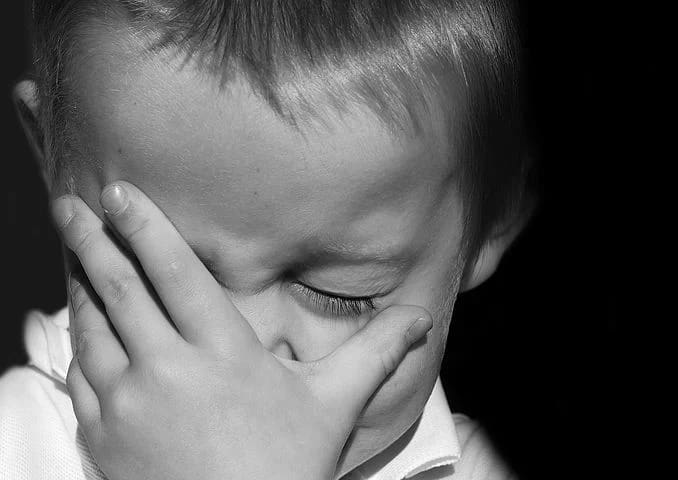4 Year Old Behavior Getting Worse – Understanding Why
Is your 4 year old behavior getting worse in recent weeks? You are in the right place! Handling 4 year olds can be quite challenging, especially if you don’t know what you should do to help change their behavior.
It is also shocking for parents to notice sudden change of behavior in their obedient child. This may happen, and it’s almost like it has come out of nowhere, and it normally feels that you’re starting all over again – which is frustrating.
However, one thing you need to know is that it’s not uncommon for your child to start misbehaving and have a sudden bad behavior.
This usually happens to so many kids and it’s brought about by plenty of factors.
These factors may include education, emotions, physical factors, or even developmental factors. When your child is affected by any of these factors, they tend to change their behavior for the worse and this may lead to hot tempers or tantrums.
A report by the American Academy of Pediatrics (AAP) indicates that 4 year olds normal behaviors include:
- They want to fit in and please their friends.
- Sudden increase in the need to be independent.
- The ability to differentiate between fantasy and reality.
- Sometimes being too demanding and other times obedient.

Skip To The Following Sections
- Common 4-Year-Old Problems and How to Deal with It
- 4 Year Old Behavior Not Listening
- 4 Year Old Regression Behavior
- What You Need to Do When You Detect Regression
- 4 Year Old Problems Hitting
- 4 Year Old Behaviour Management
- My 4 Year Old is Out of Control
- How to Discipline a 4 Year Old Who Is Defiant
- Understanding the 4-Year-Old Testosterone Surge
- Dealing with Clinginess in 4-Year-Olds
- Addressing Regression Due to Life Changes
- Positive Reinforcement and Rewards for Good Behavior
- Building Emotional Intelligence in 4-Year-Olds
- The Role of Consistency in Behavior Management
- Screen Time and Behavior
- Self-Care for Parents
- Seeking Professional Help and Support
- Addressing Sleep and Behavior
- Conclusion
Common 4-Year-Old Problems and How to Deal with It
One crucial thing you need to know is that most 4 year olds see the world in their own way. They’ve become mature and old enough to decide what they want and the way they want it.
Therefore, this is something that all parents need to keep in mind. The unfortunate fact is that the increase in maturity brings about a lot of issues.
There are two types of temper tantrums when your 4 year old doesn’t get what they want and how they want it. That is:
- Emotional meltdown
- Nero tantrum
Although these types of tantrums are considered completely normal for children at that age because it’s a way for the child to communicate.
Therefore, when this happens, there are several ways to deal with it.
Below are some ideal tips to handle the situation.
- Understand Your 4 Year Old
The first option is to try and understand the 4 year old’s behaviour getting worse, and try to see the world in their eyes.
It is essential to note that your child may not respond to logic such as telling them to go put their toys away.
That means when framing your commands, you should try and do it in a context-kind of way. You can try and ask them to do something in a friendlier manner and make them understand why it’s important to do what you’re telling them.
- Let them Make Their Own Choices Sometimes
As mentioned earlier, 4 year olds have an increased sense of independence. This is why it is important to allow them to make choices at times so that they can learn for themselves.
One option is to ask them what they would like to eat for lunch or dinner. You can give them the option to choose whether to go to the park or visit their friends.
You can even ask them what they want to wear today. That will allow your 4 year old to respond better, since they know they are the ones to make the choice.
This is one way to manage your 4 year old behavior and limit any tantrums from happening. It’s also an ideal way to help your child learn how to make choices and mature properly.
- Give them Space and Have Patience
Patience is important when handling 4 year olds. If something happens that causes a misunderstanding between you and the child, which leads to tantrums you need to give them space.
You can inform the child that you’ll give them space and allow them to think about why they’ve hurt your feelings. Then you can tell them that you’ll discuss the issue when you come back.
This is one way of helping your child to develop empathy and it will be easier for them to show it back to you and others in the future.
- Find out Why Your 4 Year Old is Misbehaving
It is always good to try and validate why your child may be misbehaving before you jump into conclusion. Although this may be a bit challenging, it’s quite effective and helpful.
For example, you can ask the child why they did something wrong or reacted the way they did, so that you can fully understand their thinking and how they viewed the situation.
This is an excellent way of validating their rage and enables you to understand the reason behind their action. It also allows your 4 year old to learn from their mistake.
It also enables your child to properly understand themselves and it offers a safe way to do that. Eventually, it will be an ideal way to help your child curb their bad behavior in the long run.
4 Year Old Behavior Not Listening
Do you have a 4 year old that is not listening to what you’re saying? There are several ways to deal with that issue. Check them out below.
- Avoid panicking – Your child is not an angel, and that means if they are not listening to you it’s not a good idea to panic. Kids can be easily influenced by their peers or what they watch on TV. Therefore, you should try and talk to them to learn the root cause of the problem.
- Set the right boundaries – Sometimes kids play roughly and make things go out of hand. Therefore, you should try and set boundaries for such plays to ensure your kids engage in safe games and express themselves properly. It is recommended to set a code of conduct to be followed while playing at home.
- Understand that it’s not your child only – Sometimes it is good to ask around and find out whether other parents are experiencing the same thing with their kids. You may come to learn that it’s not only your child, but others as well.
4 Year Old Regression Behavior
Your 4 year old behavior is getting worse and it’s leading to regression? However, most people who’ve raised children fully understand that it’s part of childhood.
Regression is when your 4 year old starts wetting the bed or having accidents. One fact that parents fail to understand is that regression is experienced by children of all ages.
Regression is when your child develops behavior that is considered younger than their age. Oftentimes, regression is caused by stress, trauma, a new sibling or divorce.
This causes children to feel scared, angry, and insecure. It makes them not to communicate efficiently, and this causes them to start developing behavior that will attract the attention of adults.
It helps to show parents in a child’s life that there is something happening, which causes them stress. As a parent you need to take time and show the child that you care.
What You Need to Do When You Detect Regression
Ensure that you give them extra attention, and help your child understand that they are important. You acknowledge their good behaviors by giving them praises.
The acknowledgement and praises will motivate your child and make them want to act according to his or her age, thereby alleviating the regression.
Another option is to sit down and talk with the child. Dig deep by asking them questions about what they feel and try to carefully listen to what he or she says.
Make sure that you are completely attentive and show your child that you care about what they are saying. Once you’ve listened, tell them that you fully understand their stress and try to be sensitive.
If you try to fight the regression from your child, just know that it may prolong the issue and cause more frustrations. Avoid shaming or embarrassing your child for being regressive.
Note that all children experience some form of regression, and that means you need to be very understanding, patient and helpful. These are the only ways to help them cope and change.
The good news is that regressive behavior doesn’t last long – only a few days or weeks. However, if it lasts for weeks or even months, we highly recommend seeking professional help.
If you believe that your child’s regressive behavior is as a result of a traumatic event that he or she went through, it is imperative to seek expert assistance as soon as possible.
4 Year Old Problems Hitting
Kids sometimes express themselves through hitting. If you’re a mum with a 4 year old that is constantly hitting you or their friends, then it’s understandable that you might be frustrated.
You may even feel exhausted when your child hits you and you don’t know what to do, or how to react to such behavior. For some parents, this may seem as a form of disrespect.
However, it’s not. This is normally a communication about something that is going on inside of them. Of course you may want it to stop as you are afraid this could have a negative impact on their mannerisms.
However, you should note that children also need to understand that parents will protect themselves from their anger.
They also need to know that parents are there to help them regardless of their emotions or anger.
When your 4 year old is constantly hitting you or their friends, it’s either they want something done, they are finding it difficult to communicate, or they lack confidence.
When that happens, it is important to try and listen to them, sit down and talk to them and find out why they are so aggressive.
4 Year Old Behaviour Management
Managing your 4 year old’s behavior is not an easy feat – but it can be done. Your child’s behavior may appear to be a constant challenge, but for their age it’s understandable.
You can talk to a professional if you think that your kids behavior is beyond your ability. The good news is that most parents and children respond well to behavioral management therapy.
My 4 Year Old is Out of Control
When you have a 4 year old that is out of control, you need to take various steps to deal with the issue and regain your power. The first thing you need to do is to create rules.
Rules are important everywhere and even for kids. Although it’s difficult to believe, kids love rules and feel safe when they know that they have parents who are leaders.
Make sure that all your household rules are clear to help you reduce chaos in the house. You can enforce this by creating a suitable structure or routine to be followed.
The structure can involve time for homework, playing, dinner, chores, and other family activities. Try to stick to this schedule mostly during the weekdays.
Assign your kids some chores and ensure that you use positive language. That means you need to focus on what your kids are able to do, and avoid that which they can’t do.
How to Discipline a 4 Year Old Who Is Defiant
There are many ways to discipline a 4 year old who is defiant. However, we will only focus on a few of the most effective ways in this section. Check out these tips below.
- Give Your Child Timeouts
Study shows that time timeouts can help to improve behavior up to 80% of the time in most children. Timeouts remove you from the child and allow them to reflect on what they’ve done.
- Language and Tone
Make sure that you watch your tone when correcting your 4 year old because of bad behavior. Try as much as possible to keep an emotional tone that is positive.
Also, try to maintain a behavior cycle that is positive in your child. The only way to achieve this is to make sure that your discipline strategies are consistent.
Understanding the 4-Year-Old Testosterone Surge
One important topic to include in the article is the influence of the testosterone surge that occurs in some 4-year-old boys. This surge can lead to behavioral changes, including increased aggression and assertiveness. It’s essential for parents to be aware of this biological aspect and learn how to manage these changes effectively.
Dealing with Clinginess in 4-Year-Olds
Some 4-year-olds may suddenly become clingy to their parents or caregivers. This behavior can be caused by various factors, such as separation anxiety, developmental milestones, or external stressors. The article can provide tips on how to address clinginess and support the child’s emotional development during this phase.
Addressing Regression Due to Life Changes
Life changes like the arrival of a new sibling, moving to a new house, or parental separation can trigger regression in 4-year-olds. The article can offer guidance on how to help children cope with these changes and navigate their emotions in a healthy way.
Positive Reinforcement and Rewards for Good Behavior
Incorporating positive reinforcement and rewards as a behavior management technique is crucial. The article can discuss the effectiveness of praise, rewards charts, and other positive strategies to encourage good behavior in 4-year-olds.
Building Emotional Intelligence in 4-Year-Olds
Teaching emotional intelligence to young children can significantly impact their behavior. Including strategies to help parents guide their 4-year-olds in understanding and expressing emotions constructively can be beneficial.
The Role of Consistency in Behavior Management
Consistency is key in effectively managing a 4-year-old’s behavior. The article can emphasize the importance of consistency in setting boundaries, applying consequences, and reinforcing positive behavior.
Screen Time and Behavior
Addressing the impact of excessive screen time on a 4-year-old’s behavior can be essential. Providing guidelines on age-appropriate screen time limits and alternatives to screen-based activities can be helpful.
Self-Care for Parents
Taking care of oneself as a parent is often overlooked but crucial for managing a 4-year-old’s behavior. Including a section on self-care tips and techniques can empower parents to handle challenging situations more effectively.
Seeking Professional Help and Support
Sometimes, behavior issues in 4-year-olds may require professional intervention. The article can provide guidance on recognizing when to seek professional help and the available resources, such as child psychologists or family therapists.
Addressing Sleep and Behavior
The article can discuss the connection between sleep and behavior in 4-year-olds. Tips for establishing a consistent sleep routine and promoting healthy sleep habits can be beneficial for parents.
By incorporating these additional topics, the article can provide a more comprehensive guide to help new parents navigate the challenges of handling 4-year-old behavior and promote a positive and supportive parenting approach.
Conclusion
When your 4 year old behavior gets worse and you’re unaware of what to do, it is recommended to either seek professional help or establish a consistent discipline strategy.
Our post has offered you plenty of solutions to some of the common issues facing parents with 4 year olds. Therefore, try and implement some of the ones you feel are suitable for your child.










